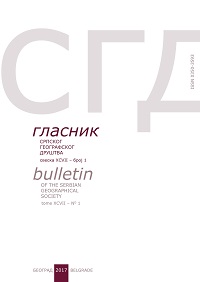Patrilineal Traditional Family - Examples of Serbia and Bulgaria
Patrilineal Traditional Family - Examples of Serbia and Bulgaria
Author(s): Vesna Miletić-Stepanović, Ljubica RajkovićSubject(s): Gender Studies, Customs / Folklore, Recent History (1900 till today), Social development, 19th Century
Published by: Српско географско друштво
Keywords: Social Development; Serbia; Bulgaria; the Balkan complex household re-traditionalization;
Summary/Abstract: The paper aims to investigate from comparative and sociological perspective the similarities between the roles of family and household in social development of Bulgaria and Serbia. The focus of the study is placed on the similarities and differences between the traditional phase of development and the industrial, modern one. Modern society as a whole is defined as untransformed and subject to re-traditionalization. The investigation rests on the assumption that within East European model, the traditional family/household is a phenomenon linked to the 19th and 20th centuries, but not to the 21st one. However, the Balkan extended family/household retains the influence it had in the traditional phase of development. In the traditional phase, the extended family commune (zadruga), characteristic of the Balkans, played an essential role for survival. In modern societies, it regains its importance for survival during social and economic crises; however, it also poses traditionally experienced risks concerning substantial deterioration of the position of women.
Journal: Гласник Српског географског друштва
- Issue Year: 94/2014
- Issue No: 3
- Page Range: 83-116
- Page Count: 34
- Language: English

